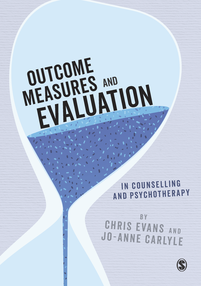This post is available in: English Italiano (Italian), there may also be a subsite in your language, see "Subsites" in the top menu.
There are now two LD-CORE measures: the LD-CORE-30 and LD-CORE-14. The choice should be made paying careful attention to comprehension and logistics.
History
As noted elsewhere, the CORE-SF/A, with the CORE-SF/B, were the only short forms alongside the CORE-OM in the suite of instruments at the launch of the system in 1998. As we did in recognising the need for the the YP-CORE, we recognised that these instruments would not work for people with learning difficulties/disabilities (LD). We recognised that the realm of difficulties and life experiences of this client group are sufficiently different that a measure would probably need some items not in the CORE-OM. However, we were surprised by just how immediate and strong was the demand for measures that could be used with people with mild to moderate LD.
Work supported by Michelle Brooks and Stephanie Davies in North London and by Simon Willoughby-Booth and Keith Marshall in Scotland, with vital driving input facilitated by Michelle and Stephanie of their local CoRG: Collaborative Research Group of adults with learning difficulties/disabilities leading to both a 30 item and a 14 item version. The response scaling on both is three level rather than five levels in the CORE-OM and YP-CORE. The items have been worded with great care and are supported by graphics, as are the responses. There are no domain scores for the LD-CORE-14. As with all the CORE measures, we recommend cautious use of prorated scores if fewer than 10% of items are missing, i.e. for the LD-CORE-14, provided there are at least 13 completed items and for the LD-CORE-30 if there are least 27 completed items.
References
Not in publication order but ordered by precedence of the work.
Barton, P., Brooks, M., Davies, S., Flynn, T., & Wood, V. (2008). From CORE-OM to CORE-LD through participatory research. Clinical Psychology and People with Learning Disabilities, 6, 27–28. http://doi.org/10.1111/j.1468-3156.2007.00476.x.
Marshall, K., & Willoughby-Booth, S. (2007). Modifying the Clinical Outcomes in Routine Evaluation measure for use with people who have a learning disability. British Journal of Learning Disabilities, 35, 107–112. https://doi.org/10.1111/j.1468-3156.2006.00422.x
Brooks, M., Davies, S., & Twigg, E. (2013). A measure for feelings—Using inclusive research to develop a tool for evaluating psychological therapy (Clinical Outcomes in routine evaluation—Learning disability). British Journal of Learning Disabilities, 41(4), 320–329. Scopus. https://doi.org/10.1111/bld.12020
Barrowcliff, A., Oathamshaw, S. & Evans, C (2018). Psychometric properties of the Clinical Outcome Routine Evaluation-Learning Disabilities 30-Item (CORE-LD30). Journal of Intellectual Disability Research, 62(11), 962-973. https://doi.org/10.1111/jir.12551.
Download
There is the one PDF file here for the LD-CORE-14 and three files for the LD-CORE-30: a scoresheet, a form for the practitioner that has suggested prompts to clarify some of the items and the form itself with the images and questions but without the prompts.
Depending on your web browser, clicking on that will either open it, in which case you should be able to save it from there, or will offer to download it for you (or it may just download it to its default download location). Downloading means you accept the licence on the measure, see copyright and licensing information.
Created for original site 1/1/2015, last updated (added header image, of item 3) 19/7/24, page author CE, licence: Attribution 4.0 International (CC BY 4.0) .



